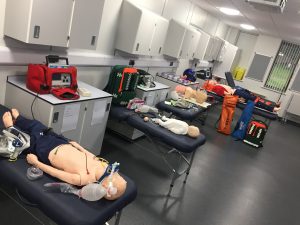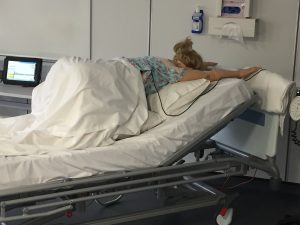The value of Simulation Based Education extends way beyond learning clinical or procedural skills on mannequins. The opportunities that exist to train students with a focus on, not only their technical skills, but also their ability to perform as part of a team, under heightened stress, is something which we will need to continue to embrace in order that our graduates go into the workplace with a rounded ability to perform within the multidisciplinary team, in the best interests of patient safety.

Patients coming to harm in a healthcare setting is depressingly common. It often occurs as a result of failures within systems and processes combining with human error. We don’t know exactly what contribution the ‘human error’ element makes in the healthcare setting, but in a parallel industry – aviation, it’s estimated that 70 per cent of incidents can be attributed to human errors. Whatever the figure, we know that human factors are at the root of many serious untoward incidents, and consequently – epsiodes of patient harm.

We routinely train student nurses, midwives and paramedics how to safely move and handle a vulnerable patient. We assess ODPs in their ability to safely prepare pieces of complex technical equipment. How much attention do we give to ensuring that our students would know what to do if they thought a colleague was about to make a mistake? How do we know that a newly qualified midwife would be able to summon help in a timely and appropriate way if maternal or foetal wellbeing suddenly deteriorated? Or that a nurse could confidently deem him or her self unfit to care for patients because they have missed a night’s sleep? Do we equip our students with the knowledge and understanding of the concepts of human fallibility and error? If we do – how do we allow them to practise doing so? We ensure they are taught how to change a dressing, or how to insert a catheter. We wouldn’t dream of sending them off to do so if they’d not had that training. Do we need to be more assured that we are sending them off into the complex, demanding and high risk environment of healthcare provision without affording them the opportunity to learn, practise and develop their skills in non-technical behaviours?
Simulation – whilst offering a wonderful array of incredible mannequins and kit to rehearse and develop technical skills upon, is also the solution to the question posed above. The opportunity for healthcare students to be immersed in as realistic a clinical environment as possible and to be equipped with the knowledge and skills necessary to work to minimise the risk to patients through enhancing their non-technical skills is of equal (if not – arguably greater) importance as learning how to insert a cannula, discharge a defibrillator or clean a wound.
I would urge all healthcare students and healthcare professionals to watch this video ‘Just a routine operation’. If you’ve watched it before – watch it again.
To be followed by ‘Debriefing – the value added part of Simulation Based Education’…..
But in the meantime – have a look here http://chfg.org

